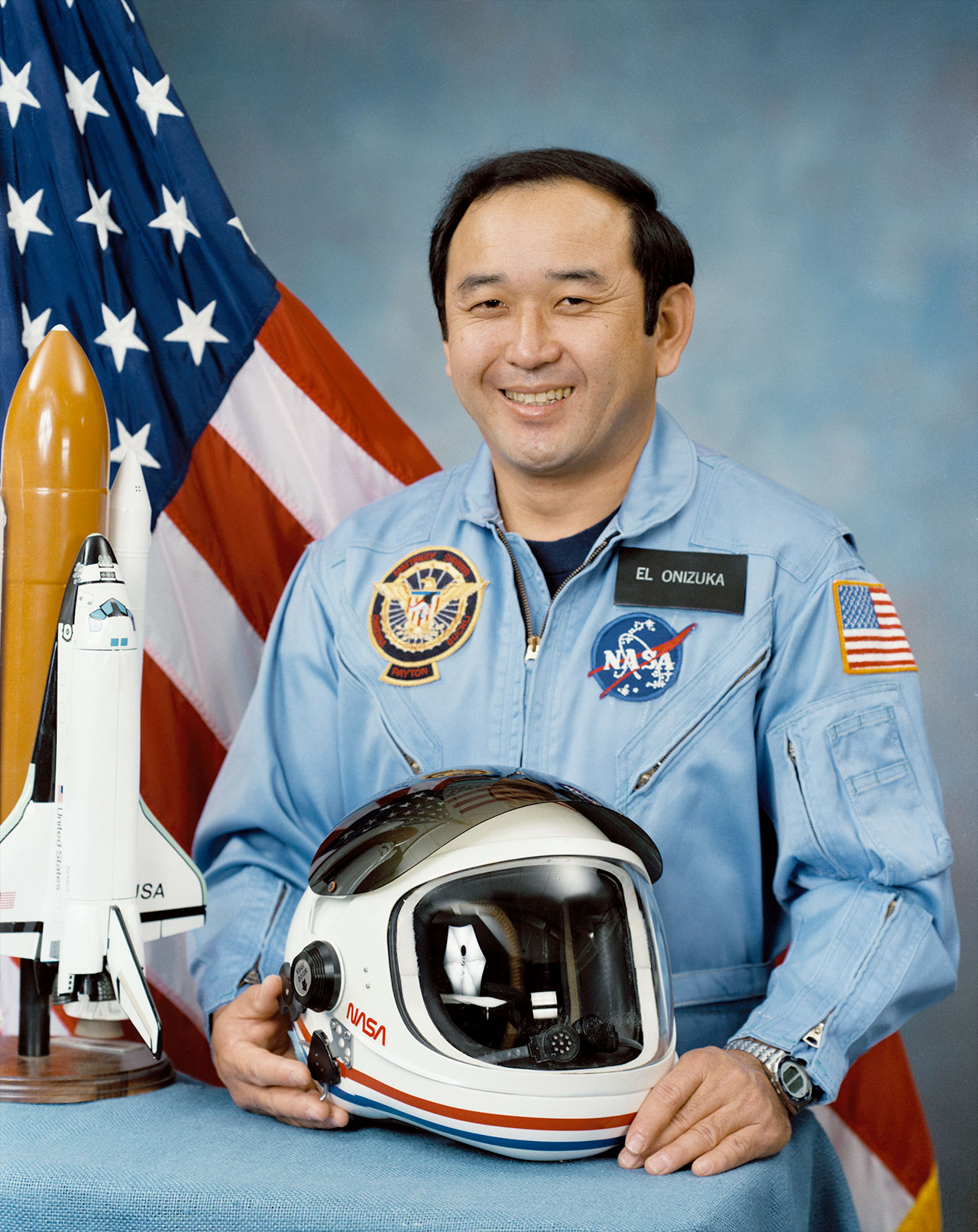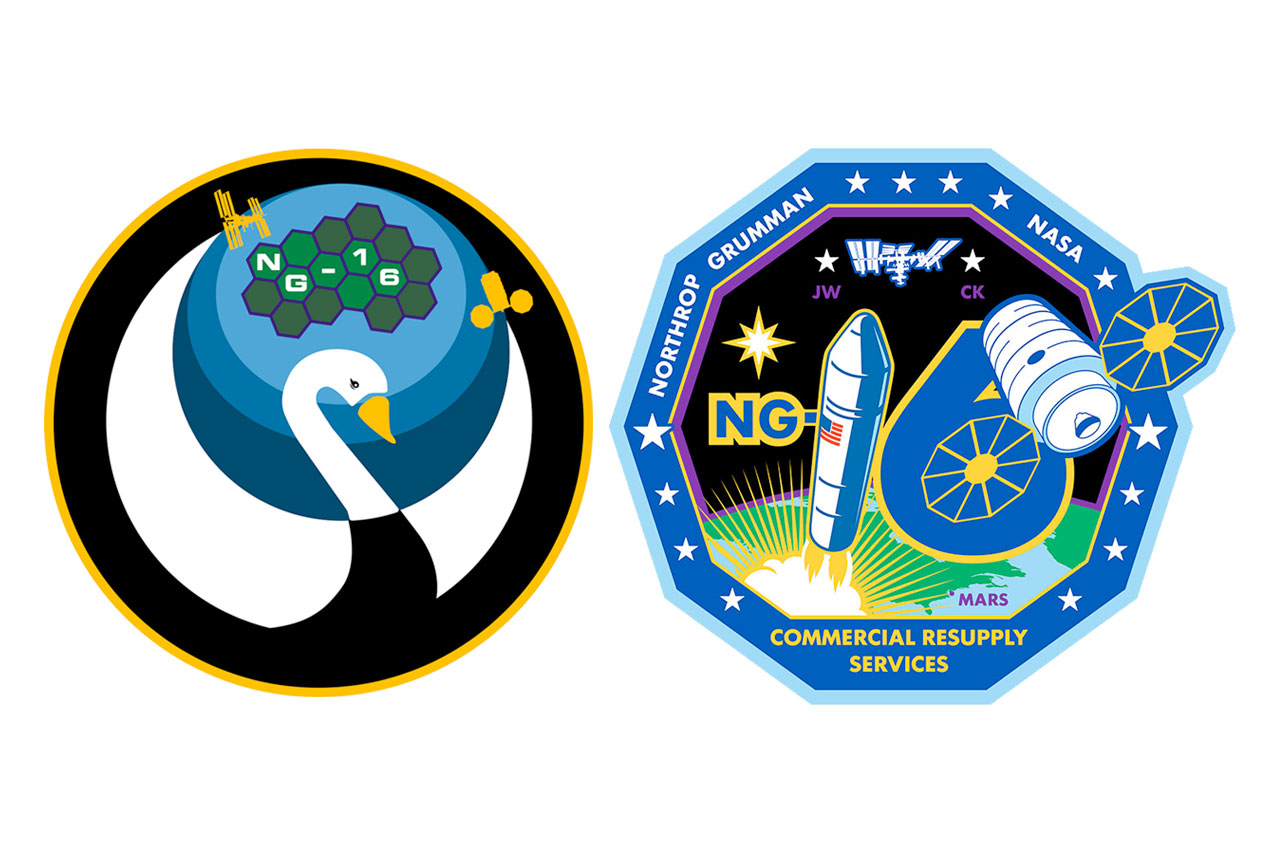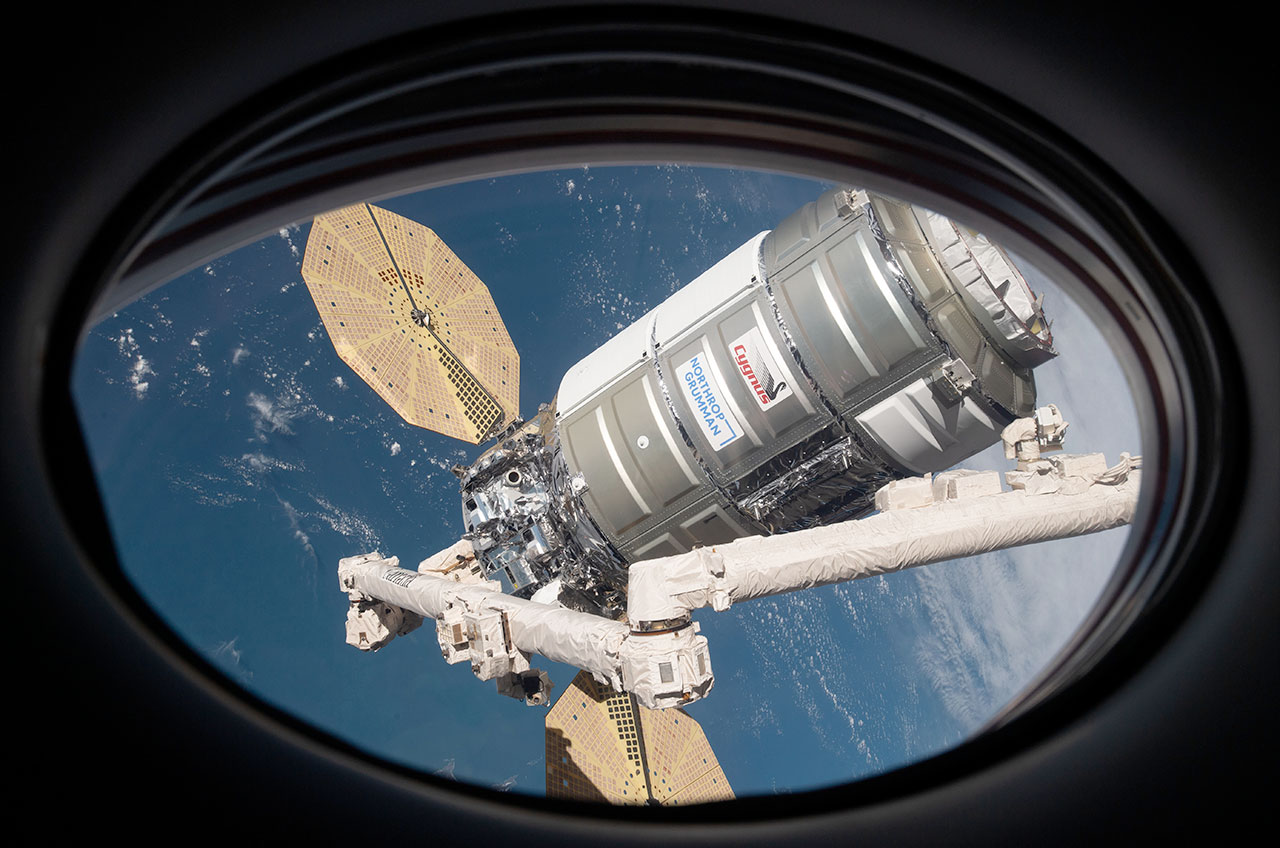Space station cargo ship named after first Asian American astronaut

The first Asian American to launch into space, who made the ultimate sacrifice in pursuit of NASA's exploration goals, has been chosen as the namesake for a commercial cargo vehicle set to deliver supplies and science to the International Space Station.
Northrop Grumman has christened its next Cygnus flying a commercial resupply services mission for NASA (NG-16) after Ellison Onizuka, who on January 28, 1986, died with his six crewmates on the ill-fated final flight of the space shuttle Challenger.
"It is our tradition to name each Cygnus spacecraft after a pioneer of human spaceflight," said Kendell Nii, a program manager for Northrop Grumman Space Systems, in a video accompanying the announcement. "As we prepare for our next mission to the International Space Station, I am proud to announce that the NG-16 Cygnus spacecraft will be named in honor of Ellison Onizuka, the first Asian astronaut to reach space."
Related: Remembering Challenger: NASA's 1st shuttle tragedy in photos
"As someone who shares his heritage, I'm inspired by Ellison as a role model for our community and for the multiple generations who'll explore new horizons," Nii said.
A U.S. Air Force flight test engineer and test pilot with more than 1,700 flight hours, Onizuka was selected to become an astronaut with NASA's 1978 class of space shuttle astronauts, the agency's first group to accept minority and women candidates. After completing basic training and while waiting for his first mission assignment, Onizuka joined the orbiter test and checkout teams at the Kennedy Space Center in Florida. Later, he worked on the software test and checkout crew at the Shuttle Avionics and Integration Lab at Johnson Space Center in Houston.
Get the Space.com Newsletter
Breaking space news, the latest updates on rocket launches, skywatching events and more!
"Ellison's first spaceflight came in 1985 as a mission specialist aboard the space shuttle Discovery, which was the first space shuttle mission flown for the Department of Defense," said Nii. "He was responsible for payload activities and logged 75 hours in space during the [STS-51C] mission."
Onizuka's second launch ended in tragedy just 73 seconds after lifting off. A seal exposed to freezing temperatures failed inside a booster, leading to the space shuttle Challenger breaking apart and claiming the lives of Onizuka and his STS-51L crewmates, including commander Dick Scobee, pilot Mike Smith, mission specialists Judy Resnik and Ron McNair, payload specialist Greg Jarvis and first "Teacher in Space" Christa McAuliffe.
(In 2018, Northrop Grumman acquired the company that produced Challenger's boosters, as well as all of the solid rocket motors that were used throughout the 30-year space shuttle program.)
"Ellison once said that 'Every generation has the obligation to free men's minds for a look at new worlds to look out from a higher plateau than the last generation.' You can find these wise words on the last page of a U.S. passport, encouraging all of us to seek out new discoveries," said Nii.



The S.S. Ellison Onizuka will deliver approximately 8,200 pounds (3,700 kg.) of supplies and research equipment for the Expedition 65 crew aboard the space station. The Cygnus freighter will be launched atop a Northrop Grumman Antares 230+ rocket from the Mid-Atlantic Regional Spaceport at NASA's Wallops Flight Facility in Virginia. Liftoff is scheduled for Aug. 10.
The S.S. Ellison Onizuka is the first Cygnus spacecraft to be named for a member of the fallen STS-51L crew. Other namesakes have included former company executive J.R. Thompson, U.S. Air Force Manned Orbiting Laboratory candidate Robert Lawrence and NASA astronauts David Low, Gordon Fullerton, Janice Voss, Deke Slayton, Rick Husband, Alan Poindexter, John Glenn, Gene Cernan, John Young, Roger Chaffee and Alan Bean.
The most recent Cygnus, which launched in February 2021 and deorbited in July, was named the S.S. Katherine Johnson after the mathematician whose work as a "human computer" helped send the first Americans into orbit.
Follow collectSPACE.com on Facebook and on Twitter at @collectSPACE. Copyright 2021 collectSPACE.com. All rights reserved.
Join our Space Forums to keep talking space on the latest missions, night sky and more! And if you have a news tip, correction or comment, let us know at: community@space.com.

Robert Pearlman is a space historian, journalist and the founder and editor of collectSPACE.com, a daily news publication and community devoted to space history with a particular focus on how and where space exploration intersects with pop culture. Pearlman is also a contributing writer for Space.com and co-author of "Space Stations: The Art, Science, and Reality of Working in Space” published by Smithsonian Books in 2018.In 2009, he was inducted into the U.S. Space Camp Hall of Fame in Huntsville, Alabama. In 2021, he was honored by the American Astronautical Society with the Ordway Award for Sustained Excellence in Spaceflight History. In 2023, the National Space Club Florida Committee recognized Pearlman with the Kolcum News and Communications Award for excellence in telling the space story along the Space Coast and throughout the world.










